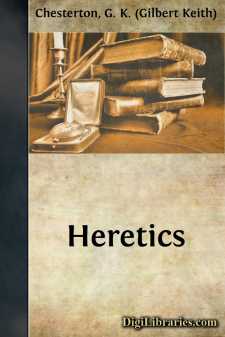Categories
- Antiques & Collectibles 13
- Architecture 36
- Art 48
- Bibles 22
- Biography & Autobiography 813
- Body, Mind & Spirit 142
- Business & Economics 28
- Children's Books 17
- Children's Fiction 14
- Computers 4
- Cooking 94
- Crafts & Hobbies 4
- Drama 346
- Education 46
- Family & Relationships 57
- Fiction 11829
- Games 19
- Gardening 17
- Health & Fitness 34
- History 1377
- House & Home 1
- Humor 147
- Juvenile Fiction 1873
- Juvenile Nonfiction 202
- Language Arts & Disciplines 88
- Law 16
- Literary Collections 686
- Literary Criticism 179
- Mathematics 13
- Medical 41
- Music 40
- Nature 179
- Non-Classifiable 1768
- Performing Arts 7
- Periodicals 1453
- Philosophy 64
- Photography 2
- Poetry 896
- Political Science 203
- Psychology 42
- Reference 154
- Religion 513
- Science 126
- Self-Help 84
- Social Science 81
- Sports & Recreation 34
- Study Aids 3
- Technology & Engineering 59
- Transportation 23
- Travel 463
- True Crime 29
Sort by:
BOOK I. THE VISION OF THE KING Before the gods that made the godsHad seen their sunrise pass,The White Horse of the White Horse ValeWas cut out of the grass. Before the gods that made the godsHad drunk at dawn their fill,The White Horse of the White Horse ValeWas hoary on the hill. Age beyond age on British land,Aeons on aeons gone,Was peace and war in western hills,And the White Horse looked on. For...
more...
I. Introductory Remarks on the Importance of Orthodoxy Nothing more strangely indicates an enormous and silent evil of modern society than the extraordinary use which is made nowadays of the word "orthodox." In former days the heretic was proud of not being a heretic. It was the kingdoms of the world and the police and the judges who were heretics. He was orthodox. He had no pride in having...
more...
ONE — The Absence of Mr Glass THE consulting-rooms of Dr Orion Hood, the eminent criminologist and specialist in certain moral disorders, lay along the sea-front at Scarborough, in a series of very large and well-lighted french windows, which showed the North Sea like one endless outer wall of blue-green marble. In such a place the sea had something of the monotony of a blue-green dado: for the...
more...
CHAPTER I. THE TWO POETS OF SAFFRON PARK THE suburb of Saffron Park lay on the sunset side of London, as red and ragged as a cloud of sunset. It was built of a bright brick throughout; its sky-line was fantastic, and even its ground plan was wild. It had been the outburst of a speculative builder, faintly tinged with art, who called its architecture sometimes Elizabethan and sometimes Queen Anne,...
more...
THE CASE FOR THE EPHEMERAL I cannot understand the people who take literature seriously; but I can love them, and I do. Out of my love I warn them to keep clear of this book. It is a collection of crude and shapeless papers upon current or rather flying subjects; and they must be published pretty much as they stand. They were written, as a rule, at the last moment; they were handed in the moment before...
more...
BY THE BABE UNBORN If trees were tall and grasses short, As in some crazy tale,If here and there a sea were blue Beyond the breaking pale, If a fixed fire hung in the air To warm me one day through,If deep green hair grew on great hills, I know what I should do. In dark I lie: dreaming that there Are great eyes cold or kind,And twisted streets and silent doors, And living men behind....
more...
THREE DEDICATIONS TO EDMUND CLERIHEW BENTLEY THE DEDICATION OF THE MAN WHO WAS THURSDAY A cloud was on the mind of men, and wailing went the weather,Yea, a sick cloud upon the soul when we were boys together.Science announced nonentity and art admired decay;The world was old and ended: but you and I were gay.Round us in antic order their crippled vices came—Lust that had lost its laughter, fear that...
more...
A DEDICATION TO E.C.B. He was, through boyhood's storm and shower, My best, my nearest friend; We wore one hat, smoked one cigar, One standing at each end. We were two hearts with single hope, Two faces in one hood; I knew the secrets of his youth; I watched his every mood. The little things that none but I Saw were beyond his wont, The streaming hair, the tie behind, The coat tails worn in front....
more...
THE SUFFRAGIST Rightly or wrongly, it is certain that a man both liberal and chivalric, can and very often does feel a dis-ease and distrust touching those political women we call Suffragettes. Like most other popular sentiments, it is generally wrongly stated even when it is rightly felt. One part of it can be put most shortly thus: that when a woman puts up her fists to a man she is putting herself...
more...
What is America? I have never managed to lose my old conviction that travel narrows the mind. At least a man must make a double effort of moral humility and imaginative energy to prevent it from narrowing his mind. Indeed there is something touching and even tragic about the thought of the thoughtless tourist, who might have stayed at home loving Laplanders, embracing Chinamen, and clasping Patagonians...
more...











